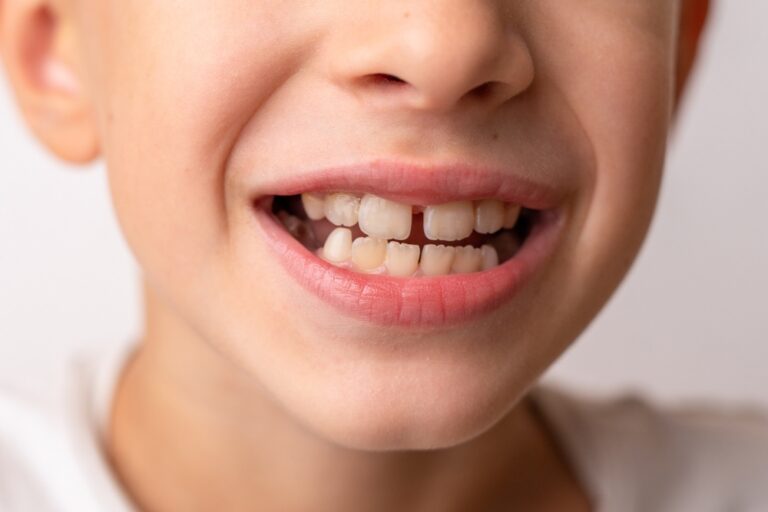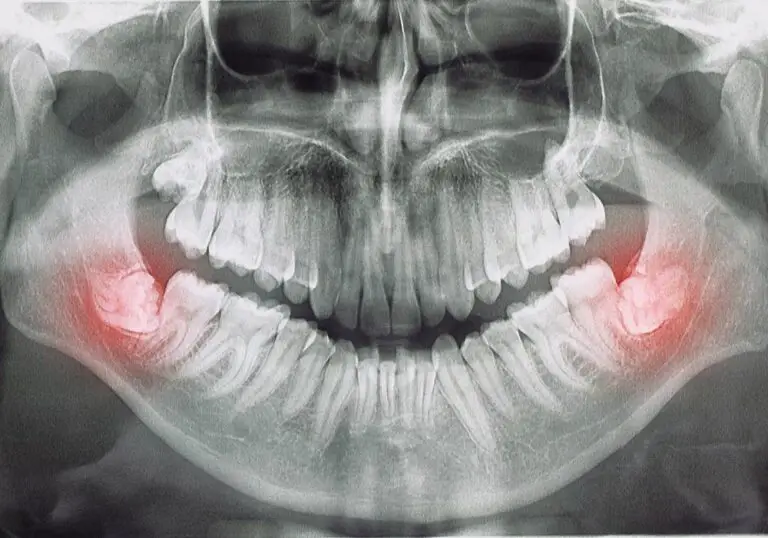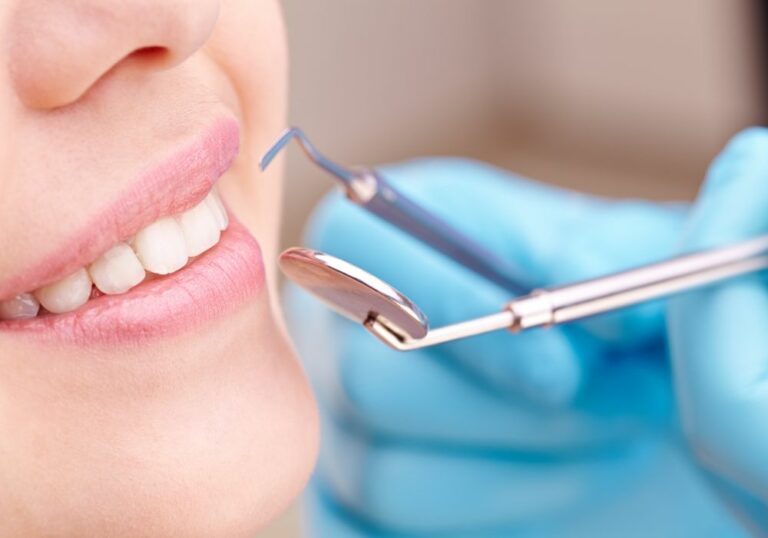Are you experiencing tooth pain during your pregnancy? You’re not alone. Many pregnant women experience dental issues, such as tooth sensitivity, gum inflammation, and even tooth decay. These issues can be caused by hormonal changes, changes in diet, and neglecting oral hygiene.
Fortunately, there are steps you can take to alleviate tooth pain and prevent further dental issues during pregnancy. Maintaining good oral hygiene is crucial, so be sure to brush your teeth twice a day with a fluoride toothpaste and floss daily. Avoid sugary and acidic foods and drinks, as they can contribute to tooth decay. Instead, opt for a balanced diet that includes plenty of fruits, vegetables, and dairy products. Drinking plenty of water can also help wash away food particles and bacteria that can cause dental issues.
Understanding Pregnancy and Dental Health

During pregnancy, your body undergoes various changes, including hormonal changes and increased blood flow. These changes can affect your dental health and cause toothaches or dental discomfort. In this section, we will explore the three main factors that contribute to dental health issues during pregnancy: hormonal changes, increased blood flow, and acid reflux.
Hormonal Changes
During pregnancy, your body produces higher levels of estrogen and progesterone hormones. These hormones can affect your dental health by causing your gums to become swollen and tender. This condition is known as pregnancy gingivitis. You may also experience bleeding while brushing or flossing your teeth.
To prevent pregnancy gingivitis, it is essential to maintain good oral hygiene habits. Brush your teeth twice a day with a fluoride toothpaste and floss daily. You may also want to consider using an antimicrobial mouthwash to reduce the risk of gum disease.
Increased Blood Flow
Pregnancy also increases the amount of blood flowing through your body. This increased blood flow can cause your gums to become more sensitive and prone to bleeding. You may also experience swelling or tenderness in your gums.
To reduce the risk of gum disease during pregnancy, it is essential to maintain a healthy diet and avoid sugary foods and drinks. Drink plenty of water to keep your mouth hydrated and rinse your mouth with water after eating to reduce the risk of tooth decay.
Acid Reflux
Acid reflux is a common problem during pregnancy. This condition occurs when stomach acid flows back into your esophagus, causing a burning sensation in your chest and throat. Acid reflux can also affect your dental health by eroding the enamel on your teeth.
To prevent acid reflux, it is essential to avoid foods that trigger the condition, such as spicy or acidic foods. You may also want to consider eating smaller, more frequent meals throughout the day instead of three large meals. Elevating your head while sleeping can also help reduce the risk of acid reflux.
In summary, pregnancy can cause various changes in your body that can affect your dental health. Maintaining good oral hygiene habits, eating a healthy diet, and avoiding foods that trigger acid reflux can help prevent dental health issues during pregnancy.
Common Dental Issues During Pregnancy
Pregnancy can cause a variety of changes in your body, and your dental health is no exception. Hormonal changes during pregnancy can lead to an increased risk of dental problems. Here are some common dental issues that you may experience during pregnancy:
Gingivitis
Gingivitis is a common dental issue during pregnancy. It is an inflammation of the gums caused by a buildup of plaque on your teeth. Symptoms of gingivitis include red, swollen, and bleeding gums. If left untreated, gingivitis can lead to more serious gum disease.
To prevent gingivitis during pregnancy, make sure to brush your teeth twice a day and floss daily. Regular dental cleanings can also help prevent gingivitis.
Tooth Decay
Tooth decay is another common dental issue during pregnancy. Pregnancy can cause changes in your diet and oral hygiene habits, which can increase your risk of tooth decay. Symptoms of tooth decay include tooth sensitivity, pain, and visible holes or pits in your teeth.
To prevent tooth decay during pregnancy, it’s important to maintain good oral hygiene habits. Brush your teeth twice a day with a fluoride toothpaste and floss daily. Limit your intake of sugary and acidic foods and drinks, and make sure to visit your dentist regularly for cleanings and checkups.
Periodontitis
Periodontitis is a more serious form of gum disease that can occur during pregnancy. It is caused by a buildup of plaque and bacteria on your teeth and gums. Symptoms of periodontitis include red, swollen, and bleeding gums, bad breath, and loose teeth.
To prevent periodontitis during pregnancy, it’s important to maintain good oral hygiene habits and visit your dentist regularly. Your dentist may recommend deep cleanings or other treatments to help prevent or treat periodontitis.
Tips to Prevent Teeth Pain

If you’re pregnant, you may experience teeth pain and sensitivity due to hormonal changes and increased blood flow to your gums. However, there are several things you can do to prevent teeth pain during pregnancy.
Maintain Oral Hygiene
Maintaining good oral hygiene is essential during pregnancy to prevent teeth pain and other dental problems. Here are some tips:
- Brush your teeth twice a day with a fluoride toothpaste.
- Floss daily to remove plaque and food particles from between your teeth.
- Use an antibacterial mouthwash to kill bacteria and freshen your breath.
- Use a soft-bristled toothbrush to avoid irritating your gums.
Healthy Diet
Eating a healthy diet is not only good for your overall health but also for your dental health. Here are some tips:
- Eat a balanced diet that includes plenty of fruits, vegetables, and whole grains.
- Avoid sugary and acidic foods and drinks that can erode your tooth enamel and cause cavities.
- Drink plenty of water to keep your mouth hydrated and wash away food particles and bacteria.
Regular Dental Check-ups
Regular dental check-ups are crucial during pregnancy to prevent teeth pain and other dental problems. Here are some tips:
- Schedule a dental check-up during your first trimester and inform your dentist that you’re pregnant.
- Get any necessary dental treatments done before your second trimester.
- Follow your dentist’s recommendations for dental care during pregnancy.
By following these tips, you can prevent teeth pain and other dental problems during pregnancy. Remember to take care of your dental health to ensure a healthy pregnancy and a healthy baby.
Safe Dental Treatments During Pregnancy
When you’re pregnant, it’s important to take care of your dental health to prevent any complications. Dental treatments are generally safe during pregnancy, but it’s important to inform your dentist about your pregnancy before any treatment. Here are some safe dental treatments you can undergo during pregnancy:
Routine Dental Cleaning
Routine dental cleanings are safe during pregnancy. Regular dental checkups and cleanings can help prevent the development of gum disease, which can lead to more serious dental problems. Your dentist may recommend more frequent cleanings during pregnancy to keep your teeth and gums healthy.
Cavity Fillings and Crowns
Cavity fillings and crowns can be done during pregnancy, but it’s important to use caution. Your dentist may recommend delaying any non-emergency dental work until after the first trimester. During the first trimester, your baby’s organs are developing and it’s important to avoid any unnecessary risks. If you need a filling or crown during pregnancy, your dentist may use local anesthesia to numb the area. Local anesthesia is safe during pregnancy.
Root Canal
If you have a tooth infection, your dentist may recommend a root canal. A root canal can be done during pregnancy, but it’s important to use caution. Delaying treatment can lead to more serious dental problems. Your dentist may recommend delaying treatment until after the first trimester. During the first trimester, your baby’s organs are developing and it’s important to avoid any unnecessary risks. Your dentist may use local anesthesia to numb the area. Local anesthesia is safe during pregnancy.
Remember to inform your dentist about your pregnancy before any treatment. Your dentist will take the necessary precautions to ensure your safety and the safety of your baby. By taking care of your dental health during pregnancy, you can prevent any complications and ensure a healthy pregnancy.
When to Seek Medical Attention

During pregnancy, it is essential to take care of your dental health as it can affect your overall health and your baby’s health. Toothaches during pregnancy can be common due to hormonal changes and increased blood flow to the gums. While most toothaches during pregnancy can be treated at home, some may require medical attention. Here are some signs that indicate you need to seek medical attention for your toothache:
Severe Pain
If you experience severe and persistent pain, it could be a sign of a severe dental issue that requires immediate medical attention. Severe pain can indicate an abscess or infection, which can spread and cause further complications.
Swelling
If you notice swelling in your gums, face, or neck, it could be a sign of an infection. Swelling in the mouth during pregnancy can be dangerous, as it can affect the baby’s health. Therefore, it is essential to seek medical attention if you experience swelling.
Bleeding
If you notice bleeding in your gums, it could be a sign of gum disease or other dental issues. Bleeding gums during pregnancy can also be a sign of hormonal changes. However, if the bleeding is severe and persistent, it is essential to seek medical attention.
Fever
If you experience a fever along with a toothache, it could be a sign of an infection. A fever during pregnancy can be dangerous and can affect the baby’s health. Therefore, it is essential to seek medical attention if you experience a fever.
Headaches
If you experience headaches along with a toothache, it could be a sign of a severe dental issue. Headaches can indicate an abscess or infection, which can spread and cause further complications. Therefore, it is essential to seek medical attention if you experience headaches.
In conclusion, if you experience any of the above signs, it is essential to seek medical attention immediately. Taking care of your dental health during pregnancy is crucial for your overall health and your baby’s health.
Frequently Asked Questions
What are some safe ways to relieve tooth pain during pregnancy?
If you experience tooth pain during pregnancy, there are several safe ways to relieve the pain. You can try rinsing your mouth with warm salt water, applying a cold compress to the affected area, or using a numbing gel or paste that contains benzocaine. It’s important to talk to your dentist or healthcare provider before using any medication or home remedy to ensure that it’s safe for you and your baby.
Can I take painkillers for tooth pain while pregnant?
While some painkillers are safe to take during pregnancy, others are not. It’s important to talk to your healthcare provider before taking any medication, including painkillers, to ensure that it’s safe for you and your baby. Acetaminophen is generally considered safe for pregnant women, but aspirin and ibuprofen should be avoided.
How can I relieve gum pain during pregnancy?
To relieve gum pain during pregnancy, you can try rinsing your mouth with warm salt water, using a numbing gel or paste that contains benzocaine, or applying a cold compress to the affected area. It’s also important to maintain good oral hygiene by brushing and flossing regularly and visiting your dentist for regular checkups.
Is it normal to experience sensitive teeth during pregnancy?
Yes, it’s normal to experience sensitive teeth during pregnancy. Hormonal changes can cause your gums to become more sensitive, which can lead to tooth sensitivity. You can try using a toothpaste that’s designed for sensitive teeth, avoiding acidic foods and drinks, and maintaining good oral hygiene to help manage tooth sensitivity.
What are some natural remedies for wisdom tooth pain during pregnancy?
Some natural remedies for wisdom tooth pain during pregnancy include rinsing your mouth with warm salt water, applying a cold compress to the affected area, and using a numbing gel or paste that contains benzocaine. You can also try using a clove or garlic paste, which have natural antibacterial properties and can help reduce pain and inflammation.
What are some tips for sleeping comfortably with a toothache while pregnant?
To sleep comfortably with a toothache while pregnant, try propping your head up with pillows to reduce pressure on the affected tooth, using a warm compress or heating pad to help reduce pain and inflammation, and avoiding foods and drinks that can make the pain worse. It’s also important to talk to your dentist or healthcare provider to ensure that you’re using safe and effective remedies to manage your toothache.






